Joan Miró 1893 - 1983
Miró was born in Barcelona in 1893, but from his mid-20s spent much of his time in Paris. His early work was influenced by various movements – Fauvism, Cubism and Dadaism – but he was particularly associated with the Surrealists. Miró stood apart from other members of the movement, innovating in the field of abstraction while using none of the superficial devices of the other Surrealists.
Read more
Drawing on his universe of signs and symbols, he was able to create a world populated by strange configurations in vivid colours. He made many prints throughout his career and in 1954 he was given the Venice Biennale print making prize. The Foundation Joan Miró was opened in 1975 overlooking Barcelona. He died in 1983.

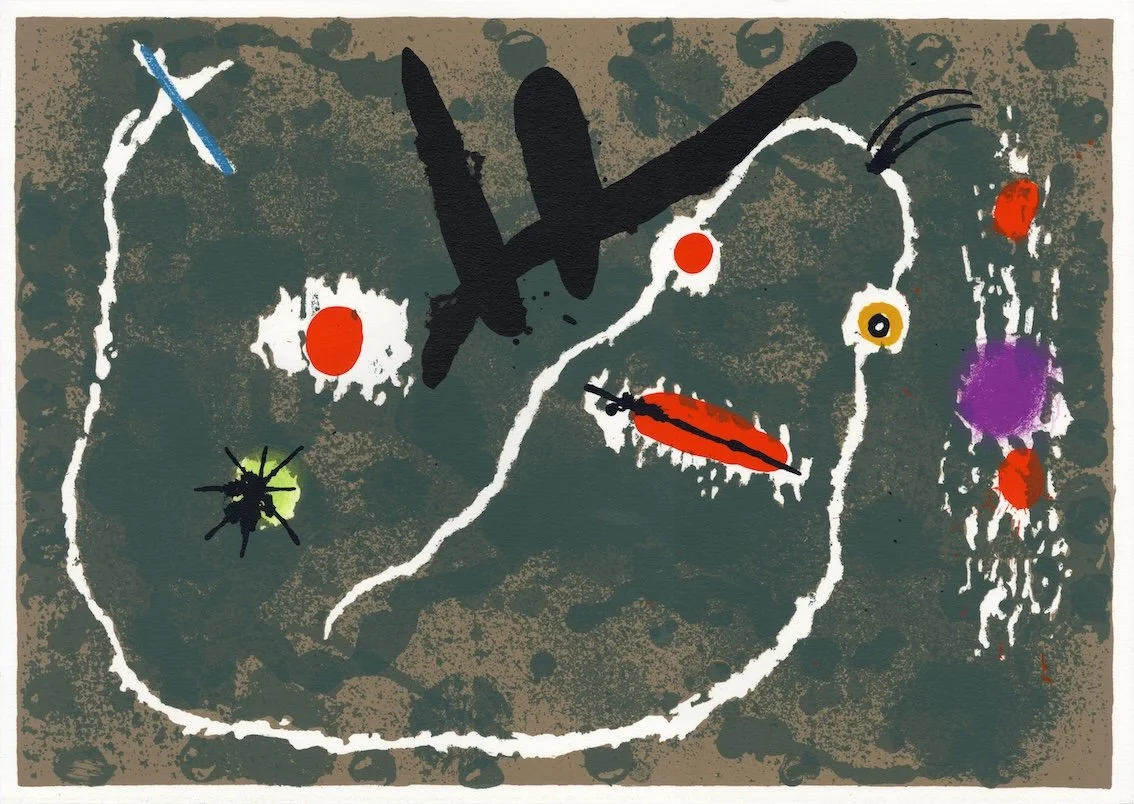
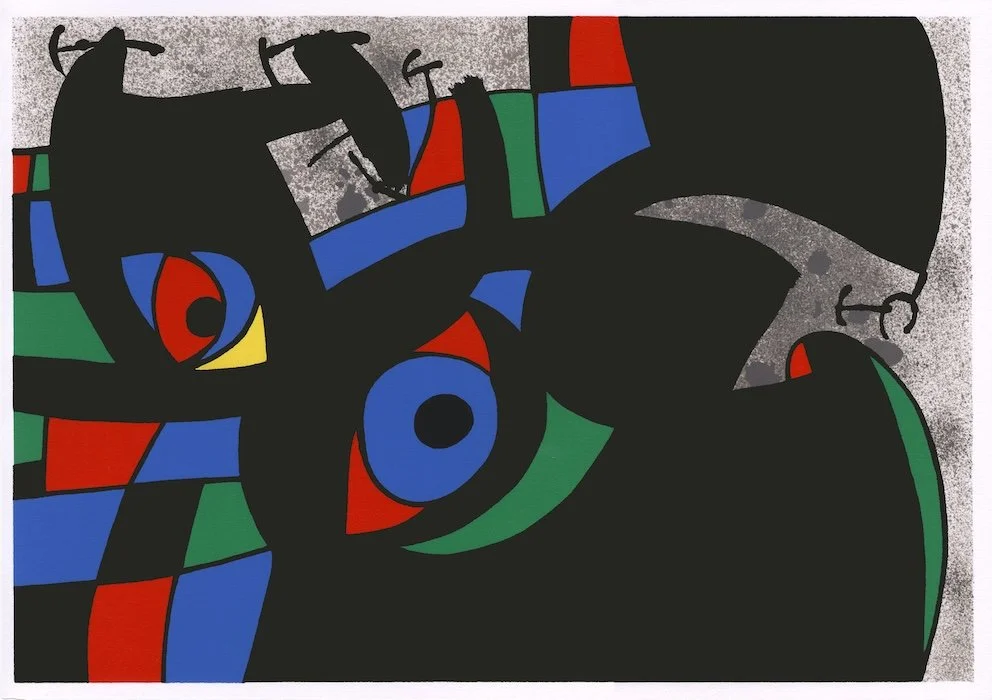
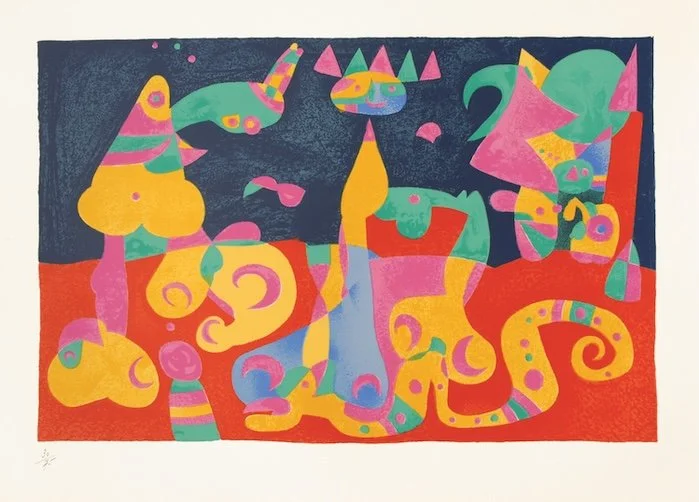
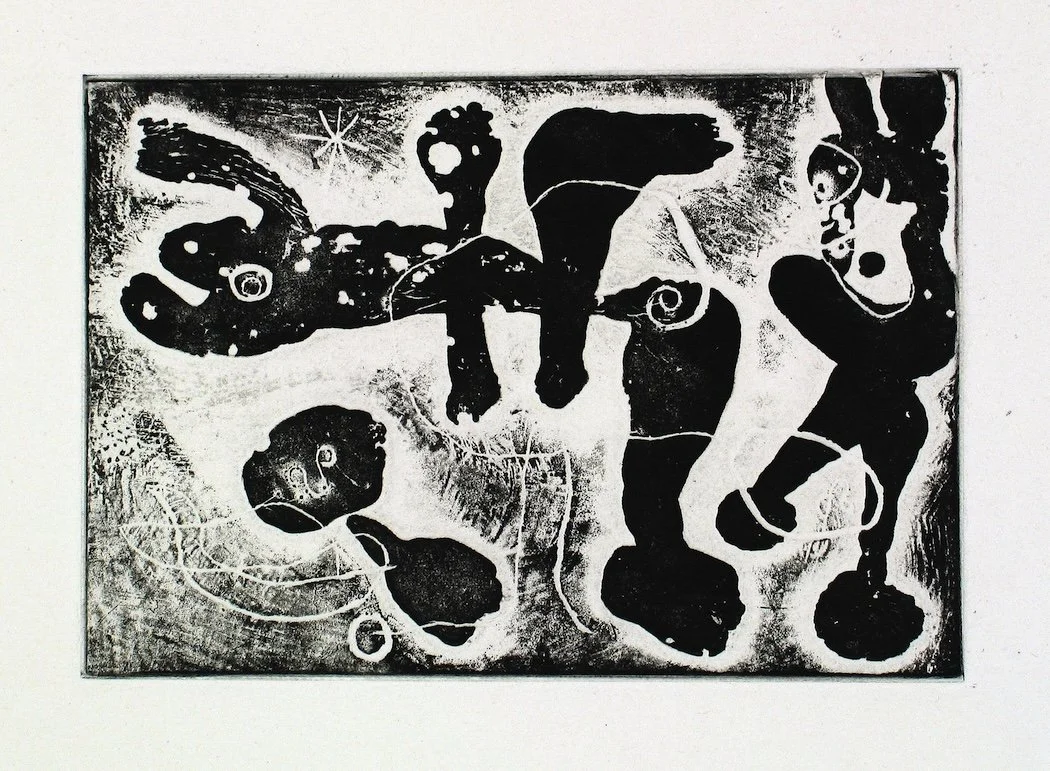

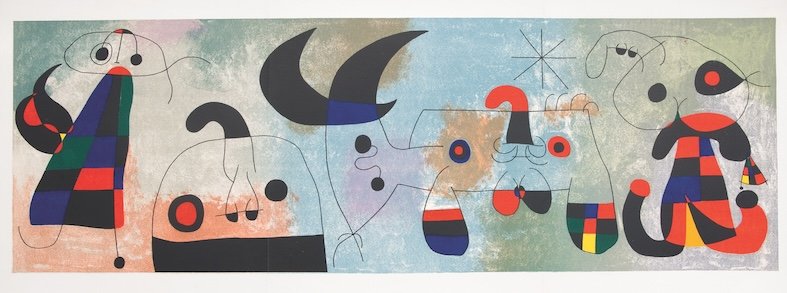
Lithograph, 1971
Suite: Le Lézard aux Plumes d'Or
Unsigned
Edition of 195
Paper size: 47.5 × 33.5cm
£1500 Framed
Illustration for the Le Lézard aux Plumes d'Or suite. Printed in 1971 by Mourlot, Paris and published by Louis Broder. Bearing the artist's signature watermark.
From the edition of 195, a copy of the signed justification page will be provided. This lithograph was to be part of a suite of 15 lithographs, illustrating a poem by Miró himself.